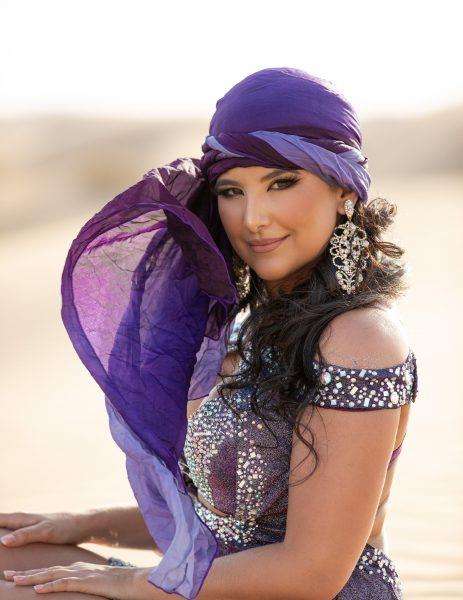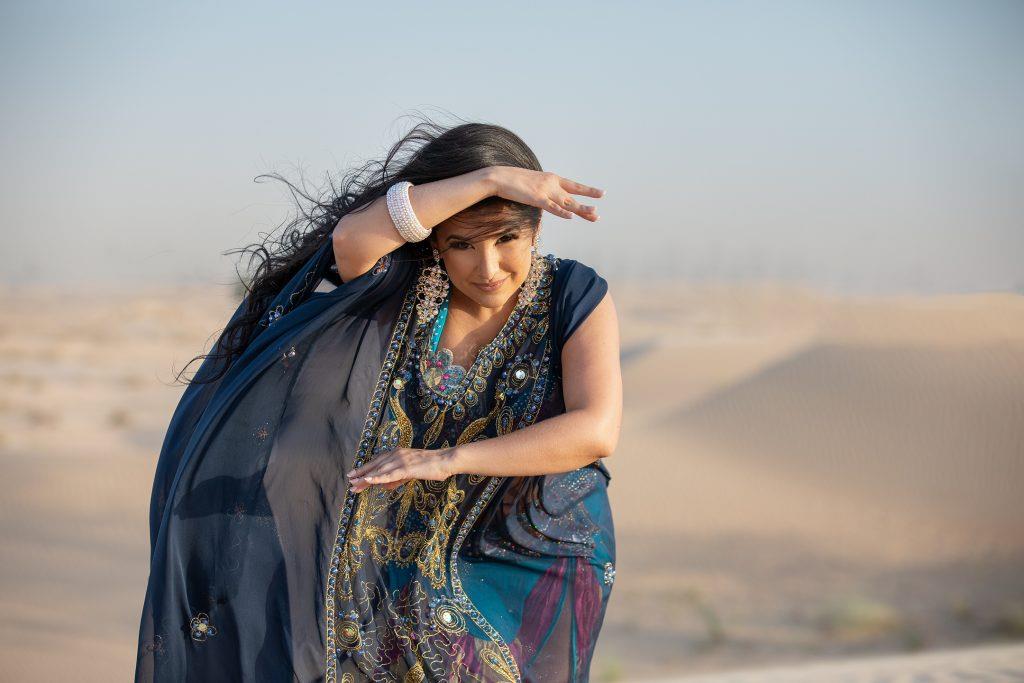
A Brazilian Master Of Egyptian Oriental Dance
“I didn't have any direct influence on learning to dance, but there are some artists in my family. My grandfather, for example, played in the marching band, and my aunt is an actress. Learning to dance happened a little by accident. My mother was taking me to swimming lessons and I saw people dancing in the other room. I went in there and never quit.”

Egyptian festival champion and Master Teacher
At age 15, Farida began performing at balls and weddings and giving private classes. Three years later, she started teaching in schools. Before opening her own dance school in 2014, Farida obtained undergraduate degrees in Performing Arts, Literature, and Music and Dance Pedagogy from São Paulo's Teatro Municipal.
To specialize in Arabic dances, she took classes with renowned teachers.“ Belly dancing became known worldwide through North American films, which gave the perspective of it being a sensual dance style. In Brazil, this dance became popular after the soap opera O Clone. But at my school, I show that this dance goes beyond the belly movements. It also generates a fluid movement with the arms,” explained the Brazilian.
In addition to the Egyptian oriental dance, Farida teaches other styles of Arabic dances at her school, including khaliji, also known as the Gulf dance, which is typical of the United Arab Emirates ; the saidi dance, which uses a stick; dabke, a folk dance practiced in different ways in Lebanon and Palestine, and the baladi, which is one of the main bases of scenic belly dancing.
“Other elements, besides the stick, are also used in class. Some dances use swords, others use different veils, and one style uses the snuj, an instrument similar to the castanet.”
While teaching classes, Farida explained it is impossible not to mix Brazilian and Arabic music styles, after all, they have many similarities.“I think the mix of Egypt and Brazil worked very well for me. In these typical dances, we use our hips a lot and have to sway,” said the dancer.
Learning with the Arabs
Before opening her own school, Farida decided to get closer to the Arabs to understand their dance styles. In 2011, she participated for the first time in the Ahlan wa Sahlan Festival in Egypt.“It was surprising that I won the competition for this typical dance in its country of origin.”
In the same year, she was on the cover of the 2nd edition of Shimmie Magazine, one of the most important publications in the world of Arabic dance.
“Since then, I've been going to Egypt at least twice a year. I spend two to three months immersing myself in the culture on each visit. After visiting Egypt for the first time, I also went to other Arab countries and cities, including Lebanon, Jordan, and Dubai, to participate in dance festivals, teach classes, and learn more about Arab dances directly from the source,” said Farida.
In 2017, the Brazilian became the World Champion of the Ahlan wa Sahlan Festival, and the following year, she became the event's official Master Teacher. After that, she was invited to join the official jury at festivals in Spain, Egypt, and Chile.
In recognition of her career, Farida became a Member of the International Dance Council of the United Nations Educational, Scientific and Cultural Organization (UNESCO) last year.
To further improve her communication when traveling, she is taking Arabic classes.“I can communicate well in English, but I like to speak a thing or two in Arabic to feel more comfortable with the public.”
Special report by Rebecca Vettore for ANBA.
Translated by Elúsio Brasileiro
Adri Photo Art/Supplied Adri Photo Art/SuppliedThe post A Brazilian master of Egyptian oriental dance appeared first on Agência de Notícias Brasil-Árabe .
.jpg)
Legal Disclaimer:
MENAFN provides the
information “as is” without warranty of any kind. We do not accept
any responsibility or liability for the accuracy, content, images,
videos, licenses, completeness, legality, or reliability of the information
contained in this article. If you have any complaints or copyright
issues related to this article, kindly contact the provider above.


















Comments
No comment